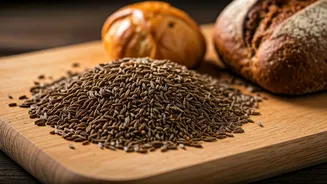Financial Performance Overview
Several companies released their financial reports, offering a glimpse into their recent performance. SBI Life saw a decrease in its Q2 profit, dropping
to Rs 494 crore, while SBI Card experienced a rise, reaching Rs 445 crore. Coforge demonstrated strong growth, with its Q2 profit jumping 86% to Rs 376 crore. Dr. Reddy's Laboratories also showed an upward trend, as its Q2 profit increased by 14% to Rs 1,437 crore. Shanthi Gears reported a Q2 profit of Rs 21.51 crore, and Brigade Hotel Ventures saw its Q2 profit after tax (PAT) increase by 57% to Rs 11 crore. These diverse results showcase the varying impacts of market conditions and strategic initiatives across different sectors within the Indian economy. These fluctuations demonstrate the complexities within the financial sectors in India.
Investment and Deals
Significant investment activities and business deals were also in the news. Deepinder Goyal invested $25 million in longevity research, while Damani invested in Lenskart before its IPO. Puravankara's arm secured a Rs 211 crore contract from SBR Builders. Furthermore, DRA Homes reported a revenue of Rs 560 crore in Chennai. These investments highlight the dynamic nature of the Indian market, with ongoing capital infusions and strategic partnerships driving expansion and innovation. These investments reflect the growing confidence and optimism within the Indian business landscape, driving further growth in different sectors. The increasing pace of investment underscores the positive outlook for India's economic development.
Market Trends and Regulations
Several market trends and regulatory changes are reshaping the business environment. Gold prices in Delhi declined due to weak global cues, and the Sensex fell by 344 points, attributed to profit-taking and FII outflows. Sebi is standardizing rules for unclaimed amounts and streamlining the PMS business transfer process. The RBI proposed new norms for banks to fund acquisitions. The Department of Telecommunications (DoT) suspended new telecom permits starting November 10. These developments demonstrate the active regulatory environment and the volatility that investors face. These movements affect investment decisions and the strategic direction of various enterprises. These changes point towards adjustments intended to improve market stability and ensure a more transparent environment.
Trade and Infrastructure
Significant developments occurred in trade and infrastructure. India is seeking to purchase more crude oil from the Middle East and the US. An EU trade delegation visited India for FTA talks, indicating ongoing efforts to strengthen international trade relations. HUDCO and JNPA entered into an agreement for port projects, showing a commitment to improve infrastructure. India is also working to increase rice exports to 26 markets through APEDA, underscoring the importance of agriculture in the economy. The Banbasa Land Port is expected to boost India-Nepal trade, signifying increased regional connectivity. These efforts highlight India's focus on diversifying its trade partnerships and improving its infrastructure, which are vital for sustained economic growth and stability.
Industry Specific News
Specific industry developments were also noteworthy. Coca-Cola India's FY25 profit decreased by 73%, and revenue declined. India's leather industry is offsetting US tariffs through the domestic market. NTPC and EIL are set to develop a synthetic natural gas facility. Waaree Energies secured 692 MW of solar module orders, indicating the renewable energy sector's expansion. Ikea is set to enter Pune with a leased store in Phoenix Marketcity. Additionally, Colab Platforms has entered the semiconductor manufacturing. These industry-specific developments demonstrate a variety of changes across different sectors, reflecting the adaptability and growth potential of the Indian economy.











